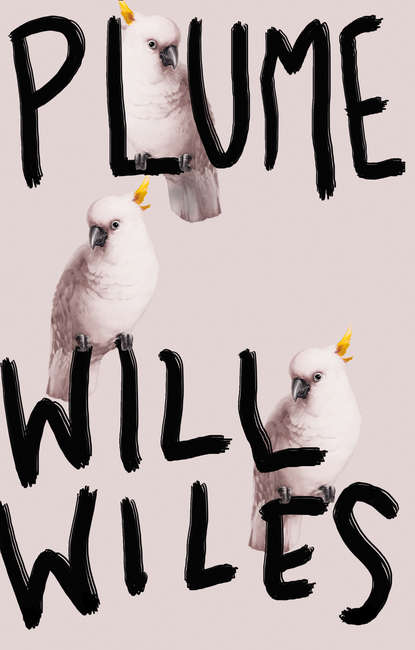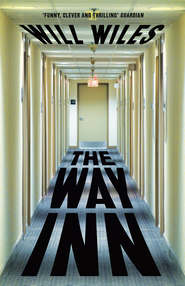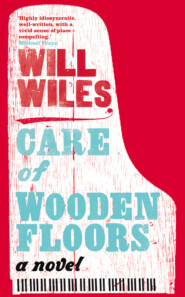По всем вопросам обращайтесь на: info@litportal.ru
(©) 2003-2024.
✖
Plume
Автор
Год написания книги
2019
Настройки чтения
Размер шрифта
Высота строк
Поля
Her tone was pleasant – just a regular chat between co-workers, as if nothing had happened, or was about to happen. A very casual assassin.
‘Long lunch?’ she asked.
Aha, I thought, here we go. I patted the book I had taken with me – Pierce’s Murder Boards, decorated with a jolly fringe of fluorescent sticky bookmarks. ‘Was doing some background. Working. Notes. Ready for tomorrow.’
‘Oh, good.’ Polly appeared genuinely pleased by this, which only intensified my suspicion that a trap lay ahead. ‘Have you looked at your emails? I’ve set things up with De Chauncey’s people – 3 p.m. tomorrow, at their Shoreditch branch. Easy-peasy.’
‘Right,’ I said. Grim tidings, but it didn’t feel like the gut-shot I had been expecting. Her chirpiness was concealing something, I knew. Sure enough, the trap revealed itself. She adopted Clipboard Pose #2: Moses, supporting it with the left forearm and laying her right palm on the attached papers, as if drawing from them some inviolable truth.
‘I wonder if you could do something else for me?’
I didn’t reply. Maybe I shuddered.
‘I’m trying to do some planning. To see if we can get past living hand-to-mouth, as we have been. When you have a spare moment, do you think you could jot down some future subjects for profiles? Your top ten people you would like to interview for the magazine.’
‘The thing is, what with De Chauncey …’
‘Eddie’s keen to see this as well.’
‘I just spoke with Eddie.’
‘I think he said to help me out with the front? This is what I want you to do. Just this.’
I coughed, throat dry, and the action churned the liquid lunch in my stomach, acid frothing, rising.
‘Just give me your target list,’ Polly continued, no less sanguine. ‘You must have people you’re pursuing? Ideas? Ambitions?’
Once I did, sure. ‘Sure.’
‘Just stick ’em on a page and give them to me. Say by Friday? Then we can get planning for the future.’
‘Sure.’
‘Great!’ And she hurried away cheerfully, clipboard swinging like a scythe.
The photograph of the plume on my computer screen disappeared, replaced by the writhing rainbow tentacles of my screensaver. But I didn’t need photographs to see it. I could just raise my eyes to the window and look at the real thing: a tight black column at the bottom of the frame, an ominous addition to the dusty publishing trophies lined up on the sill; filling the sky at the top of the frame, choking out the light.
The tasks I had been set were impossible. Not for the others, but impossible for me. I knew I would not be able to do them. I knew that I was going to be fired. I knew the how, and I knew the when. And I already knew the why.
TWO (#u12ebdc24-7568-5f1f-957f-b8f9476145db)
Latenesses, absences, missed deadlines, empty pages. I knew how it looked. It looked idle. It looked like the work – the lack of work – of a man who no longer cared. No passengers, Eddie said. We can’t carry anyone. He wasn’t the sort of boss to crack the whip unless he had to. No, his methods were persuasion and consensus. But I could see the change in him. The moment was coming. The moment when I could no longer be excused, when the accumulating evidence toppled into a landslide that would sweep me away.
Facts, accumulating. Polly’s scrupulous notes, the implacable grid of the flatplan. Gather enough facts and you have the truth. But an interviewer, a profile journalist like myself, knows different. There are, for a start, too many facts. Far too many. Punch a name with even modest achievements into a search engine and back come hundreds, thousands, of relevant results. Search someone like Oliver Pierce or Francis Quin – someone who operated online, someone with a following, an active fan base – and there are tens of thousands if not more.
Add to that what you gather yourself. People have no idea how much they say in the course of a normal conversation. Talk to someone for an hour and the transcript can approach 5,000 words. Trim away all the worthless ‘yeahs’ and ‘umms’ and ‘I thinks’, cut all the bits where they’re ordering a drink or asking their PR how much time they have left, and unless they are the worst kind of drone celeb you will still have far more quotable material than can be squeezed into the 2–3,000 words you have been given to write.
So you select. You edit. And here the interview stops being photography and becomes impressionist painting. Ten quotes that make the subject look generous, warm and inspiring can be found in the transcript. The same transcript can yield ten quotes that make them sound weary, bitter and self-centred. The person remains the same, what they said remains the same, but they are seen through a series of funhouse mirrors, appearing first hypertrophied, then stunted, then undulating …
A correction. What they said does not remain the same, not quite. The interviewer does not merely prune, then select. They edit. People talk nonsense. They speak in fragments and non-sequiturs, they repeat themselves and omit. Sometimes they skip verbs, sometimes nouns. And by ‘they’ I mean we. We are all, always, skirting total aphasia, total nonsense. But we don’t mind, we don’t even hear it, because our inner editors smooth it all away in the hearing. The real evolutionary breakthrough was not the ability to speak – it was the ability to understand.
Record the unedited spew that is natural human speech and write it down word for word, and the result is unprintable. The subject would be furious if you put these words – their exact words – in their mouth. Rightly so. They’d sound like a babbling fool. The work needed to correct this impression – to make people sound as they believe they sound – isn’t slight. It goes far beyond cutting out the ‘umms’ and ‘ahhs’. It can entail wholesale reorganisation and rephrasing of what was said. In other words – in other words! – the writer must extract the ore of what was meant from the slag of what was spoken. Done correctly, the subject won’t believe a word has been changed.
Even after explaining these difficulties, admitting the fundamental elasticity of the truth, the professional profile journalist will still insist that truth is the very soul of their work. Their profile, they will claim, is a fair portrayal, or an authentic depiction of an encounter. But I was beginning to believe that a true portrayal of another person might not be possible – not because the truth was impossible to portray, but because there might not be any truth to expose. It might be that every man and woman is a fractal Janus, infinitely involuted, showing at least two faces at every level of magnification. It might be that every human encounter is a cryptogram impervious to codebreakers.
The data Polly had collected gave the impression of idleness. If she was in a position to fill in the widening gaps in my day, that impression would only grow stronger. Perhaps she had already guessed the truth. I have considered telling the truth. I have wondered what that would sound like, what I would say, and where I would begin. But even a straightforward statement of facts is not the truth, not the whole truth.
I am not idle. I work hard. I start early, I work through lunch, I work in the evening, I work late into the night. I work until I drop. When I am kept away from work, by the Monday morning meeting or by the quiet drink I enjoyed with Mohit that same evening, work was always on my mind.
Idle, no. Polly would not see, but it is there to see, out on the streets. You are outside a pub, queueing for a cashpoint, waiting for a bus. They approach and ask for money. Maybe they have a story they tell. Look at them – the stance, the gait, the eyes. Abject, yes. But not idle. No languor, no sloth. They are busy. They are on a deadline. They are working. Addiction is work, all-consuming, urgent work. And unlike my post at the magazine, the job security is total. Addiction will never fire me. It will never let me go.
It was true that I was often late for work. But I overslept less than you might expect – I was rarely given the chance, rising promptly, at 7 a.m., when the drilling started. Next door was renovating their house. Renovate: to make new again. They were stripping that word back to its roots just as they were rebuilding their house down to its foundations. Deep into the London clay they dug, scraping out precious extra inches of floor area and headroom. They were in my head-room too. Their busy pneumatic drills were working perhaps only feet – perhaps only inches – from where my head rested on an under-washed pillowcase. They might as well have been drilling inside my skull.
I no longer got hangovers. I was never sober enough. So perhaps the universe supplied the drilling as a substitute. All the oxygen was gone from the room already. There was air, but it could not nourish or sustain. And it was thick with dust, created and stirred up by the building work. Dark grey was encroaching in the corners of the window panes, smooth surfaces crackled beneath my fingertips. My nose was blocked.
Shower first, then breakfast, I thought. But the Need disagreed. You’ll have time for that later, it lied. Me first. Still wearing no more than the T-shirt and boxers I had slept in, I went to the fridge, took out a can of Stella, cracked it, and took a swig.
The grit and stain was washed from the recesses of my mouth. Cold brilliance. Appeased for the moment, the Need receded. The choking fog around me parted and I saw the leftovers from the previous night. Grey tatters of lettuce on a sauce-smeared, greasy plate, plain newspapers balled up nearby, seven empties crowded on the little table beside the sofa – none spilled. The cushions were piled up on one side of the sofa, still indented with the impression made by my reclining form. It was dark in the living room, but it was always dark in the living room. The only natural light came through the glass roof of the kitchen extension, and that was the depleted stuff that had found its way through the winter sky and down into a canyon between the backs of Victorian terraced houses. It was further filtered by the grime that had built up on the glass roof, and the branches of the neighbours’ lime tree.
‘Good morning,’ I said to the black skeleton of the tree. It dripped filth in response.
I started to pick up empties. One turned out to be two-thirds full, and the surprise weight almost caused it to slip from my unready fingers. Another, tucked behind the lamp on the table, had about a third left in it. How long had they been there? Were they from last night, or earlier? Three days was a gamble.
The empty empties I crushed and put in the recycling; the part-empties I left by the sink. Then I sat on the sofa. The drilling had not stopped, or even subsided, but I had a little insulation in my head now, and it was at the other end of the flat. And only on the one side, for now. I felt pretty good, relatively. The meeting with Pierce was set for eleven, a civilised time, and I wasn’t expected in the office until Thursday. That was an aeon away. All that mattered was not screwing up the Pierce interview – and I was unusually well-prepared. I had actually read Pierce’s books and many of his articles; that was the reason I wanted to interview him in the first place. I just had to focus and stick to it for a couple of days, and the Polly-threat might recede, give me some time and space to get my head together, to make some changes, stabilise things.
‘Getting myself back on track, yes indeed,’ I said to the tree. ‘What do you have to say about that? Two interviews today, and they’re both going to go great.’
It had nothing to say about that.
The TV and DVD player were on standby, not completely off; they had done this themselves during the night. So discreet, so obliging. I turned the TV on and switched to the news. London Blaze, said the red caption beside the crawl.
‘… real concern isn’t the fuel but some of the additives used in some of these related processes, which we understand were on the site.’ Not a newsreader voice but the unpolished, hesitant voice of an expert, speaking over pre-dawn helicopter footage of the fire, hungry orange squirts of flame, the smoke column like a thick black neck attached to a head that was buried in the ground, swallowing, chewing, consuming. Around it, a necklace of twinkling blue lights.
‘So just how concerned should we be?’ The interviewer, a female voice, cut in. I liked this question. I wanted to precisely calibrate my concern.
‘Well, as I say,’ the interviewee, a male voice, said, ‘it’s not really a question of the fuel but the other chemicals that may have been present; now we don’t know what these were exactly, not as yet, but we understand there were substantial quantities of material on the site, and some of these can be, well, you wouldn’t want to put them on your cornflakes, ha ha, but still the question as always is one of quantifying risk.’
One of those morning interviews, then, when the interviewee’s time isn’t particularly important and there are unending minutes to fill. Slightly informative noise had to be created to cover the real interest, the pictures. Not the helicopter any more: footage from the ground, also shot before dawn, of fire crews directing inadequate-looking streams of water into a pulsing orange hell, the ground a reflecting pool in which coiled hoses wallowed.
My can was half empty already, its comforting weight gone, its top warm. I returned to the kitchen and topped it up from the one-third-full can I had found behind the lamp. Waste not, want not. The coldness and fizz of the remaining half of the fresh lager would take care of the flatness and warmth of the older stuff. But as a precaution, I poured it through a metal tea-strainer I kept beside the sink. In the past there had been instances when I had watched, horrified, as a glob of mould had slipped from a too-far-gone can into perfectly good beer. It was heartbreaking to have to pour it all down the sink. And there had been times when I had not washed it away, and they were even worse. But the strainer, found in a charity shop, had been a useful investment. This time nothing was intercepted, and the found beer frothed in a reassuring way. I had three cans in the fridge. That would probably do me for the morning.
‘Chances of a serious reaction are one in a million, one in 10 million really,’ the television voice was saying.
‘Ten million people in London,’ I said to the TV, ‘so one poor bastard …’
I tried to drink from the refilled can, but misaligned the aperture with my mouth, dribbling beer down the front of my T-shirt.
‘Shit.’







